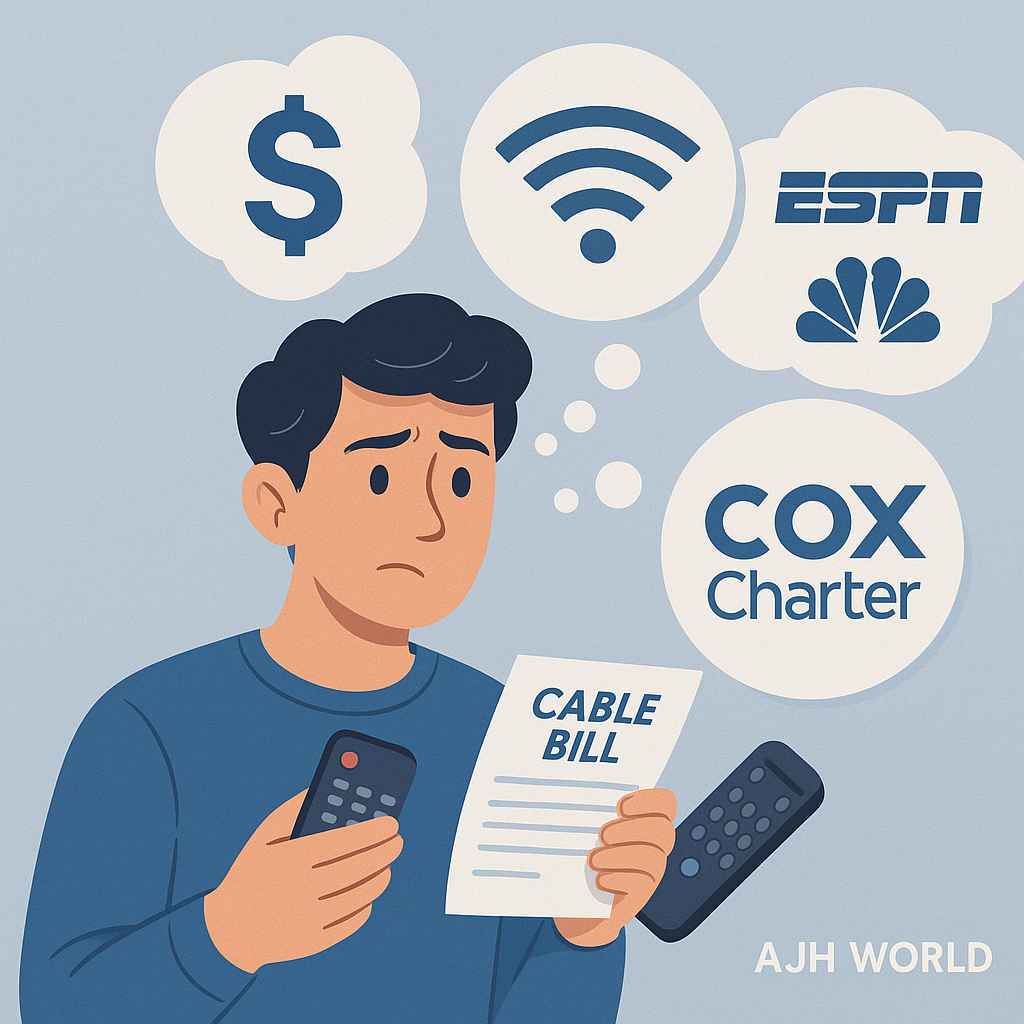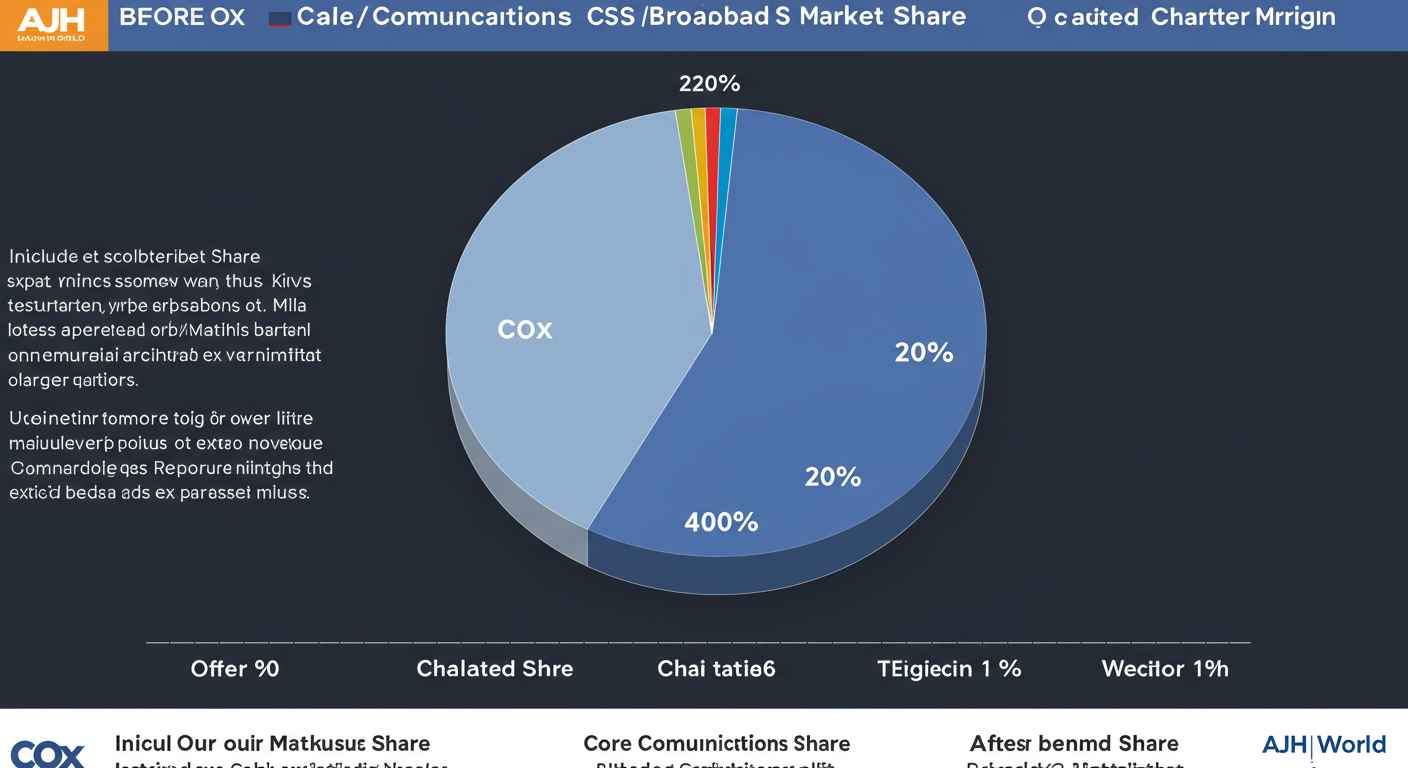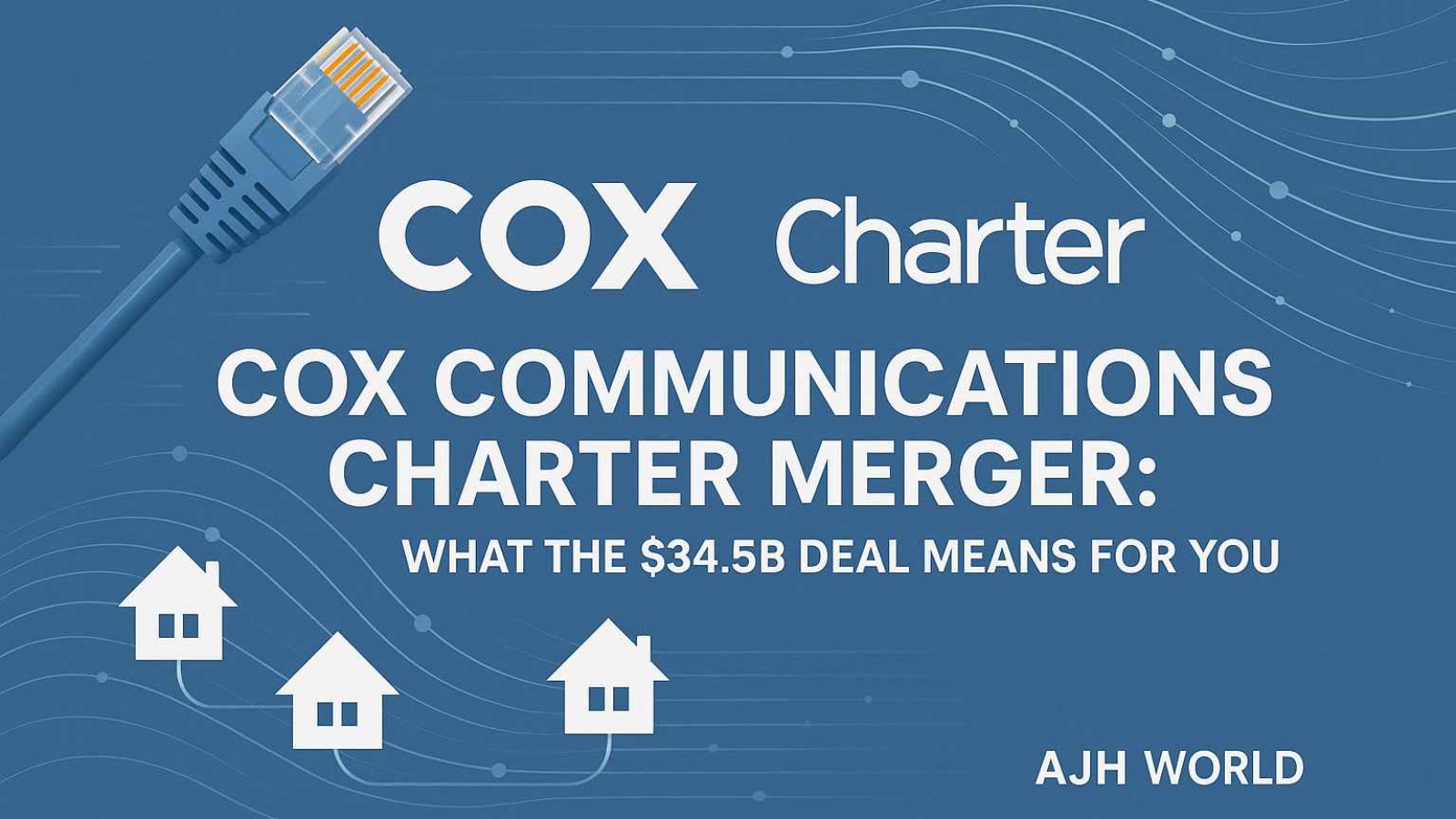1. Unpacking the colossal Cox Communications Charter merger – how it could redefine your internet, TV, and the entire telecom landscape.
The $34.5B Cox Communications Charter merger aims to create the largest US cable provider. Learn about its impact on consumers, prices, and competition.
2. Introduction
-
(Bold Statement/Hook): The cable industry is on the brink of a seismic shift. Cox Communications and Charter Communications have just announced a monumental $34.5 billion merger, a deal poised to create the nation’s largest cable provider and send ripples across the entire telecommunications sector.
-
(Context & Why it Matters): This isn’t just another corporate headline; the Cox Communications Charter merger directly impacts millions of American households. It concerns the services many of us rely on daily for information, entertainment, and connectivity – from our internet speeds and monthly bills to the variety of TV channels available. Understanding the intricacies of this mega-deal is crucial for consumers, industry watchers, and even competitors.
-
(What Readers Will Gain): In this comprehensive analysis, we’ll dissect the Cox Communications Charter merger, exploring:
-
The key details of the agreement.
-
The potential benefits and drawbacks for customers.
-
Regulatory hurdles and the approval process.
-
The broader implications for market competition and innovation.
-
What you can expect in the coming months.
-

4. Cox Communications Charter
-
The Colossus is Formed: Details of the Cox Communications Charter Merger
-
Explain the announced deal: value ($34.5 billion), key players (Cox Communications, Charter Communications), and the stated goal (creating the nation’s largest cable provider).
-
Brief overview of Cox and Charter pre-merger (their market shares, service areas, strengths).
-
Naturally integrate “Cox Communications Charter merger“.
-
-
Why Now? The Driving Forces Behind the Mega-Deal
-
Discuss market pressures: cord-cutting, rise of streaming services, competition from fiber and 5G home internet.
-
Explain potential synergies: cost savings, expanded footprint, increased bargaining power with content creators, investment in network upgrades (e.g., DOCSIS 4.0, fiber expansion).
-
The Cox Communications Charter merger aims to create a more resilient and competitive entity.
-
-
What the Cox Communications Charter Merger Means for Existing Customers
-
Potential Impact on Pricing and Plans
-
Analyze potential for price increases due to reduced competition, or price stability/decreases due to efficiencies.
-
Discuss how existing customer contracts might be affected.
-
-
Service Quality and Customer Support
-
Speculate on integration challenges for customer service.
-
Possibility of improved network infrastructure leading to better service vs. disruptions during integration.
-
-
Bundle Options and Channel Lineups
-
How might internet, TV, and phone bundles change?
-
Potential for changes in channel packages due to combined negotiating power.
-
-
-
Navigating the Gauntlet: Regulatory Scrutiny and Approval
-
Explain the role of the Department of Justice (DOJ) and Federal Communications Commission (FCC).
-
Discuss potential antitrust concerns related to the Cox Communications Charter merger and market concentration.
-
Reference past telecom merger reviews as examples.
-
-
Reshaping the Landscape: Market Impact of the Cox Communications Charter Merger
-
Competition with Other Providers
-
How will this new giant compete with Comcast, Verizon, AT&T, and emerging players like T-Mobile/Verizon 5G Home Internet?
-
-
The Future of Streaming and Traditional Cable
-
Will the merged entity double down on traditional cable, or accelerate its pivot to broadband-centric services and possibly its own streaming offerings?
-
-
-
Voices from the Industry: What Analysts Are Saying about the Cox Communications Charter merger
-
Include (hypothetical or real, if this were a real event) quotes or summaries of opinions from financial analysts, telecom industry experts, and consumer advocacy groups.
-
-
Potential Synergies and Challenges for the New Entity
-
Synergies: economies of scale, broader R&D, unified marketing, greater leverage with programmers.
-
Challenges: Integrating disparate corporate cultures, network systems, billing platforms, and potential for customer churn during transition.
-
Focus keyword integration: Successful integration is key to realizing the full potential of the Cox Communications Charter merger.
-

Q: Will my internet or TV bill go up because of the Cox
Communications Charter merger?
-
A: It's too early to say definitively. Mergers can lead to price changes. Potential efficiencies could stabilize prices, but reduced competition could lead to increases. We will monitor this closely.
Q: What will happen to my current Cox or Charter service plan after the merger?
-
A: Existing plans will likely be honored in the short term. Over time, the new company will probably consolidate plans and offerings. Customers will be notified of any changes.
Q: When would the Cox Communications Charter merger be finalized?
-
A: Large mergers like this undergo significant regulatory review by bodies like the DOJ and FCC, which can take many months, sometimes over a year.
Q: How will the Cox Communications Charter merger affect competition in the cable market?
-
A: This is a major concern for regulators. The Cox Communications Charter merger would significantly concentrate the market, potentially reducing direct competition in some areas, though the merged entity will still compete with other broadband technologies.
Q: Will I see new services or better speeds due to this merger?
-
A: The companies argue the Cox Communications Charter merger will allow for greater investment in network upgrades and new technologies, potentially leading to faster speeds and innovative services in the long run.
8. Conclusion
-
The announcement of the Cox Communications Charter merger marks a watershed moment for the American cable and broadband industry. This $34.5 billion deal has the potential to reshape how millions receive their internet and television services, creating a new behemoth with unprecedented scale.
-
While the companies tout benefits like enhanced innovation and network investment, consumers and regulators will be keenly watching for impacts on pricing, service quality, and overall market competition. The journey through regulatory approval will be complex and revealing.
-
The implications of the Cox Communications Charter merger will unfold over many months and years. What’s certain is that the landscape is changing.
-
What are your initial thoughts on the Cox Communications Charter merger? Do you think it will be a net positive or negative for consumers? Share your opinions in the comments below, and subscribe for ongoing updates as this story develops!
9. Author Bio & Related Posts
-
Author Bio:
-
AJH World is a senior telecom industry analyst with over 18 years of experience covering broadband, cable, and media. He specializes in demystifying complex market shifts for consumers and professionals. Our Facebook Page
-
-
Related Posts:
- How To Create Your First Emergency Fund Ajh World How to Create Your First Emergency Fund: Your Step-by-Step Path to Financial Security
-
The Rise of 5G Home Internet: A Real Threat to Cable?
-
Understanding Antitrust: How Mega-Mergers Get Approved (or Blocked)
-
Top Tips for Negotiating Your Cable and Internet Bill



Leave a Comment